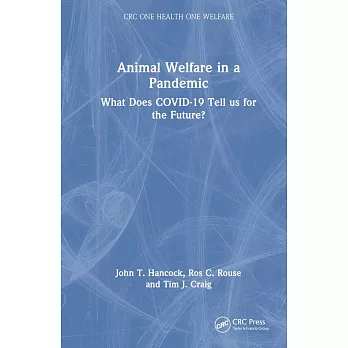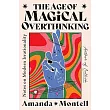John T. Hancock is Professor of Cell Signalling at the University of West of England, Bristol (UWE) UK. He studied at the University of Bristol where he obtained a BSc(Hons) in Biochemistry (1984) and then a PhD (1987). He stayed at Bristol where he held post-doctoral research positions for six years, before he moved to UWE in 1993. He has been at UWE ever since. John has a long-standing interest in how small relatively reactive molecules are able to partake in cell signalling events in cells. This often centres around the chemistry of reduction and oxidation (redox). He has authored several editions of the textbook Cell Signalling, published by Oxford University Press, as well as publishing over two hundred academic articles. He holds several editorial positions with journals, most notably being the Editor-in-Chief of the journal Oxygen. Recently, John has published the book Why Elephants Cry: How Observing Unusual Animal Behaviours Can Predict the Weather (and other Environmental Phenomena) with CRC Press. He has also written several articles on COVID-19, including about the impact of the pandemic on animals and animal welfare, and it was this which initiated the writing of this book.
Tim J. Craig originally studied Molecular and Cellular Biochemistry at the University of Oxford, graduating in 2000, before studying for a PhD at the University of Liverpool on the molecular mechanisms of neurotransmitter release. His first postdoctoral position was in ion channel physiology at the University of Oxford (2004-2009) followed by a senior postdoctoral position at the University of Bristol (2009-2015), during which he worked on many aspects of molecular neuroscience, including synaptic plasticity and neurotransmitter release. Since 2015, he has had an academic position at the University of the West of England, Bristol, where he is currently an Associate Professor of Neuroscience. In this role he teaches on many different courses, and provides most of the neuroscience teaching on the Biological and Biomedical Sciences degree courses. His research currently focusses on the role of dietary factors in neuronal health and function.
Ros C. Rouse originally studied Psychology at the University of Bristol. She is a science policy expert with extensive Research Council experience. Ros currently concentrates on promoting integrity in research at the University of the West of England, and is a member of the University’s Ethics and Integrity Committee. She has a strong personal commitment to the welfare of animals, and believes that every animal counts. Ros is committed to a vision of One Health in which the health and wellbeing of animals is considered, as well as the impact of their health on humans. Ros has co-authored several articles on COVID-19 and animals. Ros is also an artist, focussing on wildlife and the natural world.



 天天爆殺
天天爆殺  今日66折
今日66折 
























 博客來
博客來 博客來
博客來 博客來
博客來 博客來
博客來 博客來
博客來